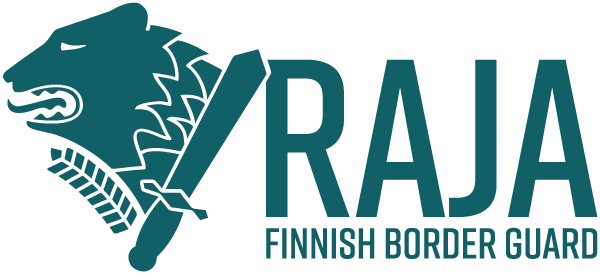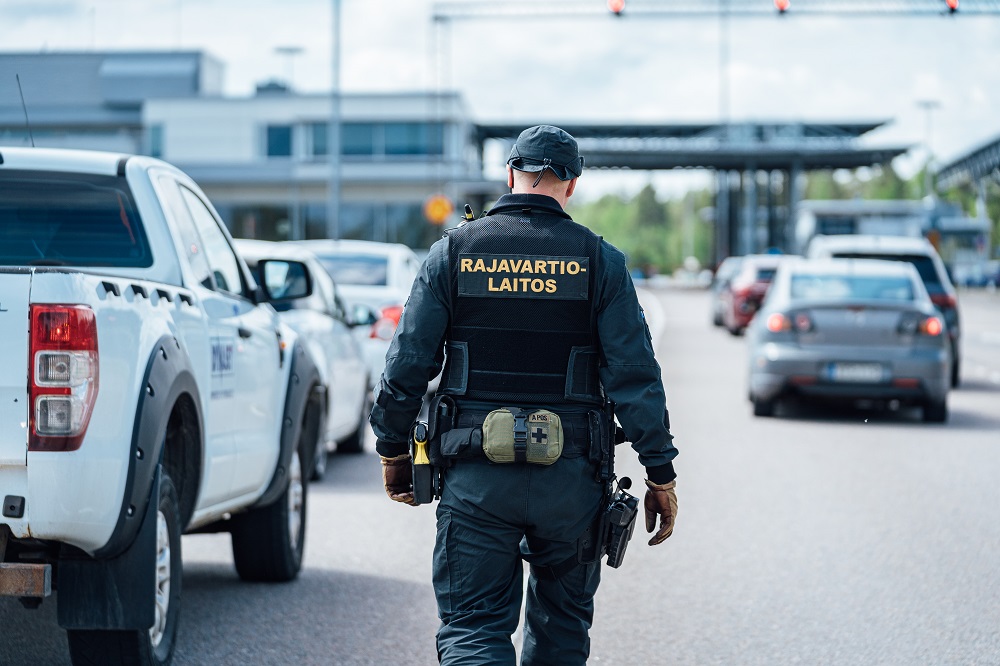General
-
If admission is refused during the restrictions’ period of validity, this also in principle means that the visa will be revoked in cases where the Schengen visa was issued by Finland.
If the visa has been issued by another Schengen country, the Border Guard will consider whether to revoke the visa on a case-by-case basis. If the visa is revoked the Border Guard will inform the visa issuing authorities of the Member State.
-
A family member of an EU citizen and other relatives comparable to a family member are defined in section 154 in the Foreign Nationals Act.
In practice, a family member of an EU citizen refers to:
- spouse of an EU citizen,
- an EU citizen’s or their spouse’s children under the age of 21,
- Dependent children, grandchildren or other relatives in the descending line of an EU citizen or their spouse,
- dependent parents, grandparents or other relatives in the ascending line of an EU citizen or their spouse and
- provider of an EU citizen under the age of 18 residing in a member state.
A registered partnership is comparable to marriage. Persons living in a marriage-like relationship and sharing the same household are comparable to a married couple regardless of their sex, provided that they have lived together for at least two years. This is not required if the persons have a child in their joint custody or if there are other compelling reasons.
-
The Schengen countries include Austria, Belgium, Bulgaria, Croatia, the Czech Republic, Denmark, Estonia, Finland, France, Germany, Greece, Hungary, Iceland, Italy, Latvia, Liechtenstein, Lithuania, Luxembourg, Malta, Norway, the Netherlands, Poland, Portugal, Romania, Slovakia, Slovenia, Spain, Sweden and Switzerland.
-
An EU citizen’s right to freedom of movement is provided for in chapter 10 in the Foreign Nationals Act.
An EU citizen can be considered exercising his or her right to freedom of movement, if he or she moves to or resides in another member state than the state he or she is a citizen of. This also applies to an EU citizen’s family member who accompanies him or her or follows him or her later.
The aforementioned instructions for EU citizens also apply to citizens of European Economic Area Member States and citizens of Switzerland and their family members.
EEA and Schengen countries - Finnish Customs (tulli.fi)
2. Travelling to Finland
-
Yes. Passengers must provide acceptable proof of family relations at the border check. The guardian or trustee of a dependent person is also treated as a relative for this purpose of entry.
The family member must also have the required travel documents and, if required, a visa or residence permit.
-
Yes, family members of third-country nationals permanently resident in Finland may enter Finland. Passengers must provide acceptable proof of family relations at the border check. The guardian or trustee of a dependent person is also treated as a relative in this purpose of entry.
The family member must also have the required travel documents and, if required, a visa or residence permit.
See also: Who are considered as family members of an EU citizen?
-
You can come to Finland to study for a short period of time (less than 90 days). It is possible to arrive with a visa when studies lead to a degree or when studies are a part of a degree. It is also possible to come to Finland to participate in the entrance examination of an educational institution or in an aptitude test, or to participate in a language test that is part of studies leading to a degree.
You can come to Finland to study in a university, university of applied sciences or vocational school. As a rule, the right to study must be in Finland.
You cannot come to Finland to study, for example, courses at adult education centres that do not lead to a degree.
The purpose of entry must be connected to studying. Persons must provide proof of the purpose of their entry as part of the border check by presenting an invitation from the educational institution or a similar document. If necessary, the authenticity of the invitation may be checked with the representative of the educational institute.
-
No, work placements are not considered a reason for travelling to Finland.
-
You cannot come with your family.
A person who owns a property, an apartment or a holiday home in Finland may enter the country if the purpose of the trip is an urgent and necessary maintenance work of the apartment or property and it requires the personal presence of the owner.
As a rule, entry can be allowed to one person who is marked as an owner.
The ownership must have started before the 30th September 2022 and it must still be in force.
- Acceptable reasons include, for example, repairing a leaking roof or draining the water pipes to prevent damage to the property.
- Such reasons do not include, for example, raking up leaves or paying invoices.
Compelling personal reasons are assessed on a case-by-case basis as part of the border check.
-
You can come to Finland for a compelling personal reason. A compelling personal reason should involve a compelling or unforeseeable matter which requires personal attendance, which cannot tolerate delay, and which would cause undue harm within the context in question if the person concerned would not attend to it.
- Such reasons include, for example, the sudden illness of a close relative or a funeral.
- Such reasons do not include events such as a wedding party or christening.
-
Recreational travel (for example, visiting the summer cottage of an acquaintance) is not an essential reason for foreign citizens to enter Finland.
-
A courting relationship is not a necessary reason for Russian citizens to come to Finland.
3. Transit
-
Yes, if freedom of movement applies to you.
Freedom of movement applies to you, if a family member of yours is an EU or Schengen state citizen and he or she has exercised his or her right to freedom of movement by, for instance, moving to another member state than the state he or she is a citizen of.
You must be able to verify your status as a family member during the border check. In addition, if you are travelling alone, you must also verify that you are travelling to meet the said family member.
(See section 2: Restrictions on the entry of Russian citizens)
See also:
- Who are considered as family members of an EU citizen?
- When do I exercise the right to freedom of movement as an EU citizen?
-
You cannot travel via Finland to meet a family member who is residing in another Schengen country with a residence permit, if you are travelling with a Schengen visa.
-
Yes, if you have the required travel documents for entering your destination. You must also have a valid Schengen visa entitling you to enter Finland.
Transit to third countries is permitted when entry into the third country is guaranteed and the passenger has a plan for immediate transit.
Please note that visas are not granted for non-essential purposes. This also applies to transit via Finland.
-
No, you cannot.
Only business travellers whose reason to travel to Finland is that their personal presence is an utmost requirement can arrive in Finland.
Transit via Finland to Schengen area is not allowed for business related reasons if there is no other special reason for entry (see item 10).
The necessity of entry will be assessed on a case-by-case basis based on the information gathered in connection with the border check. The existence of a business meeting can be verified with a phone call or by other reliable means.
-
No, you cannot. A residence permit granted by an EU country that is not part of the Schengen area does not allow you to enter into Finland or into another Schengen country. In this case, entry requires a visa. Then, your entry is assessed in relation to the established travel restrictions. However, transit to the country that granted the residence permit is allowed.
If your residence permit was granted based on right to freedom of movement, you will not need a visa and, you may enter into Finland and the Schengen area.
4. Air traffic
-
Yes. For example, you cannot fly from London to Finland for tourism purposes.
-
Yes. Flights to Finland combined with direct repatriation to Russia by any means of transport, such as one’s own car parked at the airport, is permitted under the current restrictions.
Repatriation via Finland may still be prevented for reasons beyond the scope of the restrictions, such as if the traveller has been issued a prohibition of entry or does not have the visa or residence permit required to enter the Schengen area.
-
The Finnish Border Guard investigates each passenger’s fulfilment of the entry conditions during their border check. If the conditions are not met, the traveller will receive an appealable administrative decision refusing them entry under the Schengen Borders Code. In most cases, the decision can be enforced immediately despite any appeal. After the passenger has been notified of the decision, the airline that transported them to Finland is obliged to transport them either back to the country of origin or to a third country to which they are guaranteed entry.

